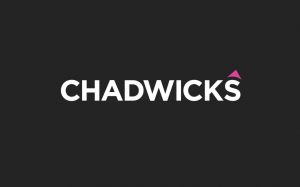Last month the consumer price index (CPI), a measure of inflation, rose to 5.1%. This was higher than expected and it has not been higher since September 2011.
The Bank of England decided today that the Bank Base Rate will increase to 0.25% which was something of a surprise but indicates a desire to help curb inflation. This is still a very low rate by historical standards and Banks and Building Societies can be slow to offer savers better returns if they do so at all.
The combination of high inflation and a low central bank rate has adverse implications for many of our clients who hold a proportion of their savings in banks and building society accounts.
According to MoneyFacts, the average easy access rate is just 0.19%. While some accounts pay as little as 0.01%. With inflation at 5.1%, money held in deposit accounts will be losing its value and future purchasing power.
I recognise that many clients like to hold cash deposits in addition to investment portfolios. This is not just for access and emergency funds but also because they are easy to understand and secure.
Remember that the Financial Services Competition Scheme (FSCS) sets a compensation limit of £85,000 per eligible person, per UK-authorised bank or building society. The limit for joint accounts is £170,000.00. Given these limits, many of our clients arrange their savings with different banks and building societies to remain within them.
According to the Guardian, UK households have saved an extra £190 Billion during Covid lockdowns, and many clients report they have been spending less over the last 18 months. Here we look at some ideas on how you may make your savings work harder to offset at least some of the effects of high inflation.
Firstly, it is worth considering some of the higher interest accounts although this is relative, as rates are so low currently.
At the time of writing, the top easy-access rate is from Investec which pay 0.71%, though you need to save at least £5,000 to open an account. Tesco Bank pays 0.69% and can be opened with as little as £1.00, but note the rate includes a 0.59% fixed bonus for the first 12 months.
There are higher rates available through current accounts such as Virgin Money and Nationwide at 2.02% and 2% respectively. While this looks attractive, these rates are only available on up to the first £1000 with Virgin Money and £1,500 with Nationwide.
Higher rates are available from notice account for example Secure Trust Bank which pays 1.1% with 120 days’ notice. Examples of fixed-term accounts are Zopa at 1.37% fixed for one year ranging to 2.08% with Hodge Bank fixed for 5 years.
With fixed-rate accounts, it is important to remember that the Bank may raise the base rate again next year and better options may become available during the term of your fixed rate.
Another option to consider which provides security and access is Premium Bonds. The odds for every £1 Bond winning are 34,500 to 1 and the prize fund interest rate is 1%. If you are very lucky you could win one of the two £1million prices which are awarded each month. Interestingly there are over 2 million unclaimed prizes worth over £73 million dating back to June 1957. If you have any old Premium Bonds, it is worth going to the NS&I website and navigating to prize-checker. You never know your luck!
Finally, adding more to your investments could be an option whether it be through a General Investment Account, an ISA, or a pension. Investment portfolios do carry the risk of course but you can invest in portfolios ranging from cautious to adventurous according to your preference. Historically Investment portfolios offer the potential to beat inflation but because they can fluctuate in value, we advise that you should only invest funds that you are not likely to need for at least 5 years.
If you wish to consider any of the options outlined here, please feel free to contact your usual Chadwicks adviser.
Bets wishes for Christmas and the New year
John Chadwick
The information on this page does not constitute any form of advice or recommendation by Chadwicks and is not intended to be relied upon by users in making (or refraining from making) any investment decisions.

